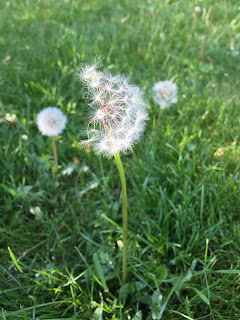The title of this post is part of a quote from
Lucille Clifton that, as you can see in the picture of this well-loved sheet of paper, I tore from a daily poetry calendar who knows how many years ago. I’ve come and gone from poetry reading and writing as life’s challenges have ebbed and flowed, but the point is that I always come back — it’s always there for me, thanks to all the other poets in the world who dip in and out of the well, collectively creating our shared and complex heritage.
About a month ago, after a long dry spell, I restarted my writing practice by creating what I’m calling poem sketches — they begin as notes on my phone, often while I’m drinking my morning tea. I was inspired by my artist friend
Lauren Kindle, who shares her sketches in blog posts as well as more crafted works of art in her online store. I’ve been trained to recognize Poetry (with a capital P) as being necessarily labored over, but I wanted to give myself permission to play and share less polished things, too. Because why not? Life is short and all that.
In the current moment, when I and many of my fellow well-meaning white folks have awoken or re-awoken to the need to,
as Bryan Stevenson says, “reckon with our history of racial injustice,” I don’t feel right simply launching into another period of posting and sharing my words on this blog without first acknowledging the work of writers of color, particularly black American writers, whose words have instructed and inspired me to become more awake, aware, and active.
Here are four Black poets whose work has affected me in the past year:
- Morgan Parker’s Magical Negro is a kick-ass collection of righteously pissed off, bold and brazen poems. One of my favorites is It Was Summer Now and the Colored People Came Out Into the Sunshine.
- Ross Gay’s writing focuses on joy, gifts, and beauty, even when his topic is tragedy or violence, like in his poem about Eric Garner called A Small Needful Fact.
- Life on Mars by Tracy K. Smith explores love, violence, the afterlife and outer space in a beautiful, celebratory, and mournful collection of poems. Her podcast The Slowdown delivers powerful, contemplative essays and poems daily.
- Kevin Young’s Brown is, among other things, a series of history lessons in poem form, a primer in empathy for white folks to imagine, as he writes in Nightstick [A Mural for Michael Brown], what it’s like to “dare take / a left / into the wrong / skin.”
Something I’m learning that making art and fighting racism in society and ourselves have in common is that all of these efforts can be thwarted by perfectionism. Too often, I’m hesitant to share creations I view as somewhat flawed or to say things I’m not 100% confident about, for fear of — gasp! — making a mistake. Going forward, my aim is to fear mistakes a little less (my own as well as my culture’s) and to learn from them how to do better. Being unconscious of my white privilege is one of those past mistakes. One action step I’ve taken is to use race and ethnicity as part of the criteria for choosing the books we read in a discussion group that I lead, alternating white authors and people of color.
Remember, if you read or hear a poem that you like by a poet who’s new to you, that’s a great reason to get a book of theirs and see what else they have to say. There are many ways to fight racism and educate ourselves, including reading literature (poetry or otherwise) written by black Americans — preferably procured from your local public library or independent book store. You can also check out this
list of black-owned bookstores.
While trying to find a citation for the pictured quote from Lucille Clifton (which I haven’t managed to find yet), I came across one of her poems called
my dream about being white. In it she says “there’s no future / in those clothes,” implying that there’s no future in the so-called privilege of “wearing / white history.” What I take from those lines is that there’s no good future based on an unacknowledged and unhealed past of white dominance — hopefully, with awareness and action, we can make a better future together.




